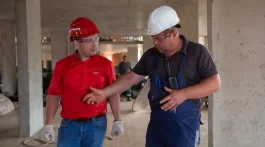If you or your loved one was recently diagnosed with mesothelioma, it is likely that you were exposed to asbestos for a long period of time. Mesothelioma develops when asbestos fibers are inhaled, causing cell damage, scarring, and permanent inflammation.
The four primary types of mesothelioma are:
- Pleural mesothelioma
- Peritoneal mesothelioma
- Epitheloid mesothelioma
- Biphasic mesothelioma
Many often wonder what they should do after being notified of their diagnosis. Here are 5 steps to take after you (or a loved one) has been diagnosed with Mesothelioma.
1. Confirm your diagnosis is correct
About 3,000 people every year are diagnosed with mesothelioma in the United States, making up less than 0.3% of the United States cancer diagnoses.
Symptoms of the disease vary, but can include the following:
- Chest pain
- Pain when coughing
- Shortness of breath
- Unusual lumps under the skin on your chest
- Unexplainable weight loss
- Abdominal pain
- Abdominal swelling
- Nausea
Due to the rarity of the disease, it is important that you seek advice from a mesothelioma specialist. Most doctors are not fully experienced with this disease, so it is important to contact a mesothelioma specialist who is an expert and specializes in your specific type of mesothelioma. Gaining a second opinion from a specialist could reveal details critical to your treatment or treat you for another health issue.
2. Understand your condition
After you have been diagnosed, it is important to understand the meaning behind the disease. Mesothelioma is a rare cancer caused by a form of asbestos. The toxic mineral was used from the 1930’s to the late 1970’s on many products throughout the United States due to its affordability and durability.
Millions of Americans have also been exposed to asbestos due to their work environments. Those most at risk include factory workers, miners, installers, railroad and automotive workers, ship builders, gas mask manufacturers, plumbers, and construction workers. Family members of at risk workers may also be exposed to asbestos, as asbestos fibers latch easily onto clothing.
3. Find treatment options
The three most common treatments for mesothelioma are surgery, chemotherapy, and radiation therapy. Although there is no cure for mesothelioma, treatments are known to help improve quality of life and extend life expectancy. There are emerging treatment options including immunotherapy, virotherapy, and gene therapy that mesothelioma specialists and researchers are testing to ensure treatment safety and effectiveness. Speak with your doctor to figure out the necessary treatments for you.
4. Get support
Receiving a mesothelioma diagnosis can be shocking and difficult to handle on your own. With the most common symptom of mesothelioma being fatigue, you may have difficulty performing your daily tasks. Finding a strong support group of friends and family members will help you better cope with this disease.
5. Find an attorney who specializes in mesothelioma
Mesothelioma attorneys represent victims of asbestos exposure. Hiring an experienced mesothelioma attorney like Joseph P. Williams will be important when it comes to compensation options for covering the cost of care. The attorney will walk you through every step of the process and provide clarity through this difficult time in your life. The right attorney will listen to your story, get to know you and your family, and help you secure favorable compensation.




No Comment